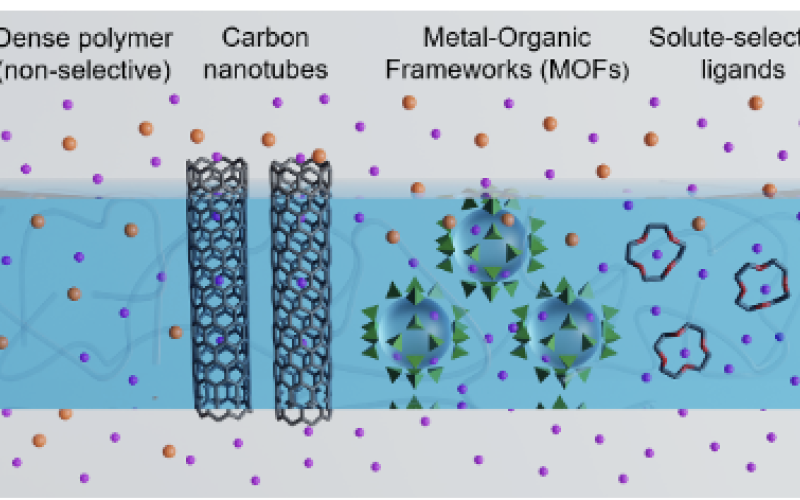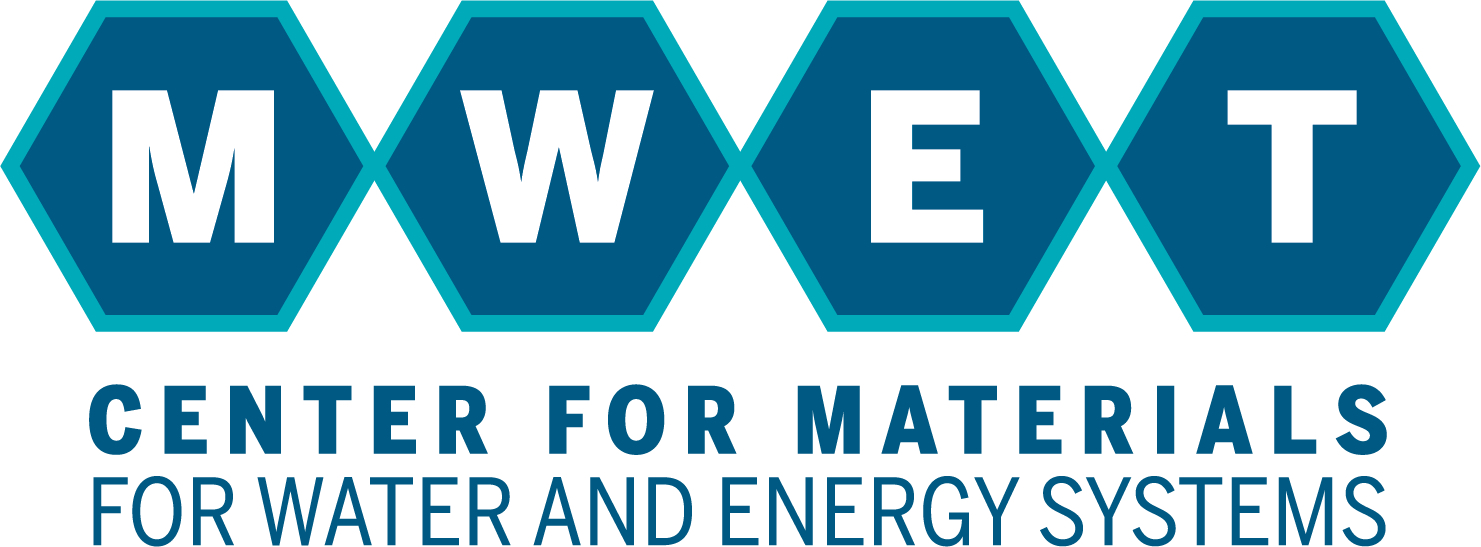
Scientific Achievement
New synthetic strategies to improve membrane selectivity were identified and fundamental design questions were addressed.
Image: Structured nanomaterials and solute-specific ligands show potential for efficient, solute-tailored separations using membranes. Transport in conventional membranes can be non-selective for solutes of similar charge/size. Carbon nanotubes, metal organic frameworks, and solute-selective ligands, such as ion chelating crown ethers, offer promise in achieving targeted solute separations from contaminated water sources for water purification and resource recovery.
Significance and Impact
Paradigm shifts in membrane design towards solute-tailored selectivity would enable efficient treatment of recalcitrant waters, expanding membrane separations to emerging fields.
Research Details
- Assembled and analyzed data highlighting selectivity challenges of conventional membranes.
- Discussed incorporation of nanomaterials and selective ligands to enhance molecular selectivity.
- Identified gaps in understanding transport in solute-selective membranes and proposed research directions to address these gaps.
R.Sujanani, M.R. Landsman, S. Jiao, J.D. Moon, M.S. Shell, D.F. Lawler, L.E. Katz, and B.D. Freeman, ACS Macro Letters, 9, 1709-1717 (2020).
Work was performed at The University of Texas at Austin and University of California Santa Barbara.

